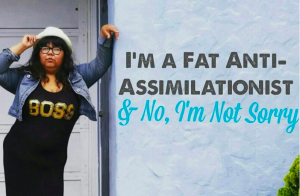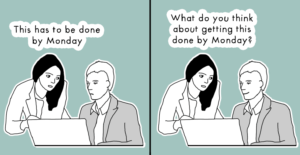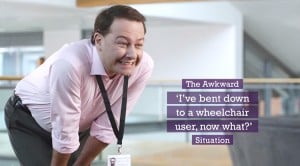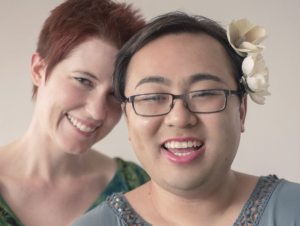
Credit: Seven Story Learning
In my work with high school students, I am regularly asked, “What can I do? I know that injustice exists, but I feel so powerless. I want to help!”
More often than not, the students asking the question is doing so from a place of privilege: a straight student who wants to be a better LGBTQ ally, a white student who wants to be more anti-racist, an able-bodied person who wants to better support his differently-abled brother.
It’s no surprise to me that folks of privilege are the ones struggling to figure out how to act for justice. More often than not, those who are denied access, voice, privilege, and justice in dominant culture know exactly what they need to do to act for justice.
Those of us with identity privilege, though, can simply coast, never considering how our unchecked privileges contribute to a system of oppression.
To that point, my answer to their question is always the same: “Listen.”
Listening Is the Root of Justice
There are lots of steps that someone can take to become a better ally, but surely there is no more important step than listening.
I was raised in a culture where I benefit from a great many privileges. I am cis-male, white, straight, English-speaking, and able-bodied, and I come from a family of wealth privilege. In the words of Louis CK, “How many advantages can one person have!?”
With those unearned advantages comes a little voice that tells me that I am always right, that I am above reproach, that I have power and deserve power.
And not only does this little voice tell me that I am always right, but it tells me that there is no need to listen to the voices of those who are different from me.
“What could they possibly teach me?”
And therein lies the arrogant lack of perspective that can come with any form of identity privilege.
After all, when a person lives in a vacuum of privileged voices and perspectives, how brilliant can said person be?
Men who refuse to listen to women, cis folk who ignore trans* voices, white people who ignore people of color… In every case, we are denying ourselves the knowledge of powerful perspectives.
And because privilege conceals itself from those who have it, those of us who benefit from identity privilege are often unaware of the perspectives we deny, silence, and stifle with our voice.
As such, I’ve done a lot of silencing in my life, but most of it wasn’t active. I haven’t simply talked over someone or shouted someone down.
Instead, I’ve resorted to one of my most powerful weapons as a person of privilege: my refusal to listen.
For example, white people like myself are taught that we shouldn’t listen to voices of color. After all, if we did, we wouldn’t need study after study to prove that racism is real and that we don’t live in a “post-racial” society.
We would simply be able to hear it in the stories and voices of those folks of color that must live in our racist society every single day.
So What Can We Do?
It seems simple, right?
“Yeah, yeah…I need to shut my yapper and listen more.” But it’s not quite that simple.
True, taking a step back, realizing your voice doesn’t always need to be heard, and understanding that you can often learn more by listening than by blabbing is a place to begin.
But we have to consider what it actually means to listen.
Listening, first of all, must be more than looking for tidbits from another person that confirm our worldview.
Listening must be more than waiting to respond or hoping for “dialogue.”
Listening must be more than choosing one tokenized voice that represents in our mind “all people of color” or “all women.”
Listening is the process of opening oneself up to not only another’s words but to the sum of their lived experience behind those words.
Listening is bearing witness to the testimonies, stories, emotions, and experiences being shared.
Listening is opening ourselves with the desire to learn and understand before we look for engagement, disagreement, or dialogue.
The reality is that in dominant culture in the United States, there are certain voices that are systematically silenced, ignored, and pushed to the margins.
In turn, the very act of bearing witness to these voices is radical and transformative.
Seek Out and Listen to Varied Voices
As people of privilege, we must seek out spaces where we can listen to a variety of voices, particularly those voices we don’t often hear.
In doing so, we must keep in mind that our identities are complex, and while we may be denied voice in one arena of our life, in others, we may have incredible privilege.
The likelihood is that no matter your identity, there is always room to listen and learn.
This can be tricky, though, because simply saying “listen to voices of difference” can be a slippery slope into tokenization: “Hello, black person! Please explain to me what all black people think on this issue!”
First, we must realize that unless they know that the space is safe, a person who is used to being marginalized is not going to be fully honest with you.
Second, no single voice can speak for every person of that identity. Ever.
Instead, we need to seek to foster, create, and earn a place in safe spaces where marginalized voices can speak freely and honestly.
Sometimes that means that we attend events that are created by and for women or people of color or another marginalized group (assuming that said events are open to everyone), and we listen.
Other times it means that we acutely listen to the voices in our places of worship, offices, sports teams, family gatherings, and so on.
We demonstrate to those in our lives who don’t share our privileges that we have an honest desire to listen and that we will carefully consider their perspective, and we work hard to earn and maintain their trust.
Still other times it means that we change how we consume media.
Expand Your Media Consumption
In his brilliant piece entitled “White People Have to Give Up Racism,” Mychal Denzel Smith puts it this way:
“White people have to diversify their media consumption… A few prominent, usually very bright, but generally non-threatening folks of color become the cherry-picked spokespeople for the entire media world, knowing they could never adequately represent the complexity of the group to which they’re assigned.
Yet, white people turn to them as the Yoda of all things race-related at the expense of deepening their understanding. People of color have been locked out of mainstream media outlets for so long, we started making our own out of necessity…
Vital conversations often take place there about the ways in which we experience the world. White people should check them out.”
What books are you reading? Whose analysis is reflected in your news media? What music are you listening to? What movies are you watching?
This is precisely why spaces like Everyday Feminism are vital. They prioritize subversive, transcendent conversations, voices, and perspectives that are traditionally denied a place.
You’re not going to hear much about “Gay Men’s Sexism and Women’s Bodies” or “Ability Privilege” or “Complicated Latina Feminist[s] Ending Violence” on Fox News and CNN.
If, when we examine our media consumption, we realize that the same identities and voices are dominant, it’s time we expand our circle.
When You’re Called Out or Defensive, Listen and Self Reflect
One of the most important lessons in listening, though, is realizing that we’re going to screw up.
A female professor of color once told me,
“The best thing you can learn to do if you want to be an ally is realize that you’re going to screw up, and you’re going to do it a lot, so you will need to learn to apologize with honesty and a true desire to change. Then don’t get hung up. Move forward and do better.”
And that’s hard.
Because when we are trying hard with honest intent to be better allies, it is tough to be told that we’re doing it wrong or that our actions are actually doing more harm than good.
But we have to listen.
When criticized for my language, the space I am taking up, or for the ways in which my actions reveal my privilege, my first response needs to be to listen.
No matter how defensive that statement makes me, I need to listen.
No matter how much I would like to retort with a story about how I’m not as privileged as the other is assuming, I need to listen.
No matter how much I want to prove my social justice credentials, I need to listen.
No matter how much I want to explain, deflect, or defer, I need to listen.
Because we only grow when we’re uncomfortable, and to listen, internalize what we’re being told, and push for change is to make oneself profoundly uncomfortable.
And that is good.
Not All Listening Is the Same
Finally, we need to recognize that not all listening is the same. I cannot tell you how many times I have had men say to me, “Why should I have to listen more to women! It’s not like my voice is ever heard!”
It is entirely possible that a single person of privilege feels like they are not often heard, like their voice is ignored. And I will not deny that this might be true in your experience.
But we are not talking simply about singular voices. We are talking about patterns and systems that are larger than any one person.
Thus, you may feel like your Christian perspective is scoffed at and mocked, but Christian narratives are the single most dominant religious narrative in the United States, and there are countless mediums through which Christians can have their voices heard by the masses and where Christians can control their own narratives in dominant media.
The same is true of male voices, cis voices, white voices, straight voices, able-bodied voices, wealthy and middle class voices, and so on.
But Muslim voices? Feminist voices? Voices of color? Transgender voices? Not so much.
So no, sir, women don’t need to listen to your voice in the same way that you need to listen to theirs. That is not a double standard. It is, in fact, the opposite.
It is a new standard that we must create and enforce to counteract the normative standard where certain voices of privilege are weighted over others.
Want to discuss this further? Login to our online forum and start a post! If you’re not already registered as a forum user, please register first here.
Jamie Utt is a Contributing Writer at Everyday Feminism. Jamie is a diversity and inclusion consultant and sexual violence prevention educator based in Minneapolis, MN. He lives with his loving partner and his funtastic dog. He blogs weekly at Change from Within. Learn more about his work at his website here and follow him on Twitter @utt_jamie. Read his articles here and book him for speaking engagements here.
Search our 3000+ articles!
Read our articles about:
Our online racial justice training
Used by hundreds of universities, non-profits, and businesses.
Click to learn more




















